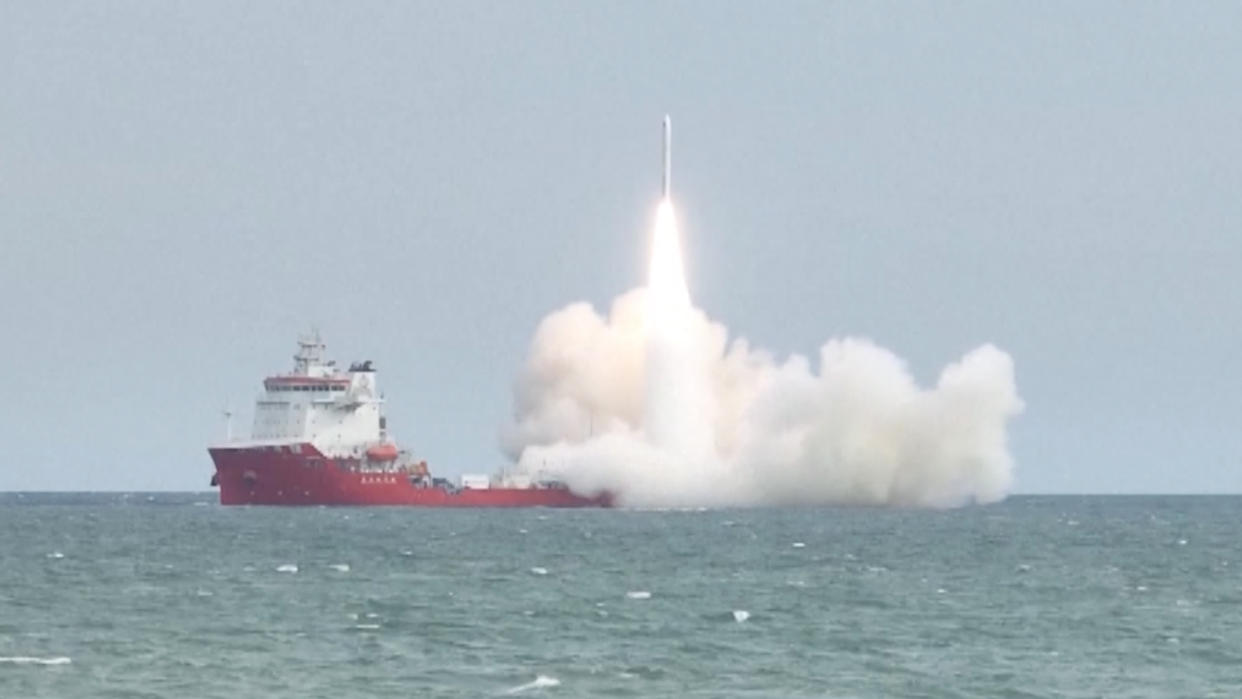Watch Chinese company launch 4 satellites to orbit from ship at sea (video)

A Chinese commercial launch company sent four satellites into orbit on Wednesday (May 29) with the second sea launch of the Ceres-1 solid rocket.
The Ceres-1 lifted off Wednesday at 4:12 a.m. EDT (0812 GMT; 4:12 p.m. Beijing time) from a sea platform off the coast of China's eastern province of Shandong.
Aboard were the Tianqi 25-28 satellites, part of a planned constellation of Internet of Things (Iot) data connectivity satellites for Beijing-based company Guodian Gaoke. The satellites were sent into a low Earth orbit with an altitude of 528 miles (850 kilometers), Galactic Energy said in a statement.
Related: China's record-breaking Gravity-1 rocket aces amazing debut launch from ship at sea (video)

The launch was the 12th to date for the four-stage Ceres-1 and its second from a sea platform. Galactic Energy gave the mission the codename “Beautiful World,” with sponsorship from social media platform Sina Weibo. China built sea launch capabilities at Haiyang in Shandong to provide another, flexible option for space launches.
Galactic Energy is one of a number of commercial launch companies in China. It is planning four further Ceres-1 sea launches this year, according to Chinese media. It will also conduct land-based launches of Ceres-1. The firm aims to launch its first liquid-propellant rocket, called Pallas-1, later this year as well. Galactic Energy plans to make the Pallas-1's first stage reusable.
RELATED STORIES:
— China just launched a rocket with 5 satellites to orbit from a platform at sea
— China plans to take 'hack-proof' quantum satellite technology to new heights
— Watch China launch Smart Dragon-3 rocket from the sea (video)
Wednesday's launch was China's 25th orbital mission of 2024. China's main space contractor said early this year that the country is planning around 100 launches across 2024, including about 30 commercial missions.

